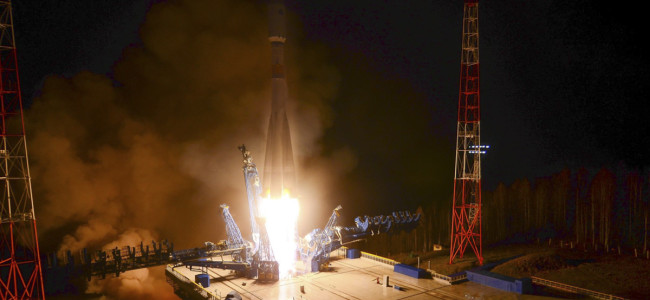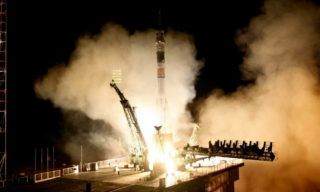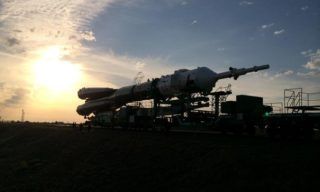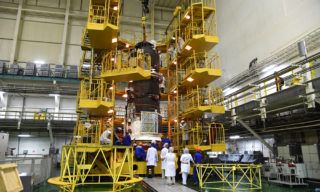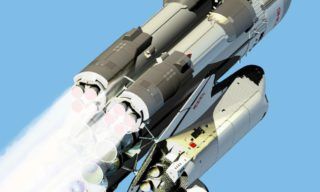On Saturday, November 3, at 11:17 pm Moscow time, at the Plesetsk State Test Space Center in the Arkhangelsk Region was successfully launched the “Soyuz-2.1B” mid-range space rocket with the Russian “Glonass-M” navigation satellite.
The launch was carried out by a joint team of specialists from Roskosmos , enterprises of the rocket and space industry and the Ministry of Defense of Russia under the general leadership of the Commander of the Space Forces, Deputy Chief Commander of the Aerospace Forces, Colonel-General Alexander Golovko.
The launch of the carrier rocket and the launching of the spacecraft into the calculated orbit took place in the normal mode.
Three minutes after the launch, the “Soyuz-2.1B” launch vehicle was taken to escort by the ground-based automated control complex of the German Titov Main Test Space Center.
At the estimated time, the “Glonass-M” was launched into the target orbit and accepted for control of ground-based facilities of the Space Forces of Russia.
A steady telemetric connection was established and maintained with the spacecraft.
The on-board systems of the “Glonass-M” spacecraft were functioned normally.
This is the fifth launch of space rockets from the Plesetsk cosmodrome in 2018.
From the beginning of the year, launches of the “Soyuz-2.1V” and “Rokot” light-carrier rocket and the “Soyuz-2.1B” middle class have also been successfully launched from the northern cosmodrome.
Flight tests of the “Soyuz-2” rocket complex began at the Plesetsk cosmodrome on November 8, 2004.
Over the past fourteen years, 35 launches of “Soyuz-2” rocket launchers have been conducted from the northern cosmodrome.
This is the second spacecraft of the “Glonass” system, launched into orbit from the Plesetsk cosmodrome in 2018.
The previous launch of the “Glonass-M” space unit from the northern cosmodrome was performed by the combat crew of the Space Forces on June 17 of this year.
The “Glonass-M” space unit, launched into orbit, has replenished the orbital grouping of the Russian Glonass Global Navigation Satellite System and is at the stage of entry into the system.
Currently, the “Glonass” orbital group comprises 27 space units, of which one unit of the new generation, “Glonass-K”, is undergoing flight tests and one “Glonass-M” unit is under maintenance.




